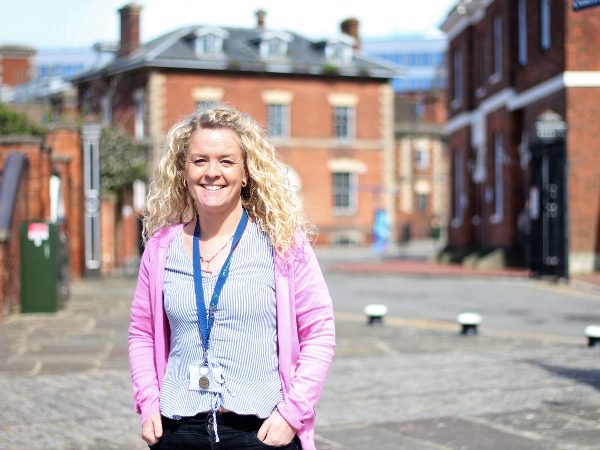Supporting Families Through Challenging Times
When a family member becomes involved with the Criminal Justice System, the ripple effects are felt by everyone—especially the family left behind. Often overlooked in conversations about crime, these families bear emotional, financial, and social burdens in silence. This is where the Hidden Victims of Crime project steps in, offering vital, compassionate support. But what exactly does this project do, and why is it so important?
What is the ‘Hidden Victims of Crime’ Project?
The Hidden Victims of Crime project provides tailored, practical support to families who are affected by a loved one going to prison or becoming entangled in the justice system. The project is entirely free, ensuring that families have access to specialized help without the worry of additional costs.
Each family is paired with a dedicated therapeutic caseworker who conducts an in-depth needs assessment. From there, a personalized plan of action is developed, offering everything from mediation and advocacy to emotional support for children. The goal is to help these families navigate the emotional turmoil, social stigma, and practical challenges they face.
Why Are They Called “Hidden Victims”?
When we talk about crime, the focus tends to be on the offender, the direct victim, and sometimes the wider community. But there’s another group who suffers just as profoundly—the families of offenders. These families, particularly the children, are often forgotten or neglected within the criminal justice process, making them “hidden victims.” They aren’t just bystanders; they are direct and indirect victims of the offender’s actions, experiencing emotional distress, societal stigma, and significant disruptions to their daily lives.
The Impact on Children: Shocking Statistics
Children are particularly vulnerable to the effects of having a parent involved in the criminal justice system. In the UK alone, around 312,000 children have a parent in prison at some point each year, according to a 2019 report by the Prison Reform Trust. That’s approximately 2.5% of the child population in England and Wales. These children face a host of challenges, including:
- Educational disruption: They are twice as likely to struggle with behavioural issues, poor academic performance, and absenteeism.
- Living instability: Many children are cared for by other family members, such as grandparents or aunts, while some even enter the foster care system.
- Long-term mental health impacts: Children of incarcerated parents are at a higher risk for anxiety, depression, and trauma-related disorders.
- Increased risk of criminal behaviour: These children are more likely to engage in criminal activity themselves, perpetuating a cycle of crime within families.
Measuring the Impact: How the Project Helps
The Hidden Victims of Crime project doesn’t just offer support; it tracks the impact of its work to ensure real, measurable progress. The Warwick-Edinburgh Mental Well-being Scale (WEMWBS) is used alongside an 18-statement questionnaire, creating a baseline for each individual. This allows us to monitor their progress over time.
In the past year, the project has seen positive changes in many areas:
- 67.9% of individuals reported improvements in school attendance.
- 54.8% reported better mental health outcomes.
- 76.7% saw improvements in their overall family situation.
- 43.5% showed greater engagement in community activities.
These numbers reflect the transformative impact the project has on the families it serves.
The Short- and Long-Term Impacts on Children
The emotional and psychological effects on children whose parents are involved in the justice system can be both immediate and long-lasting.
Short-Term Impacts:
- Emotional distress: Fear, confusion, and anxiety are common reactions, particularly if the child witnessed the arrest.
- Stigmatization: Children may face bullying or social isolation due to their parent’s criminal involvement, leading to feelings of shame or rejection.
- Family disruptions: Changes in caregiving arrangements and economic hardship often follow, adding further instability to the child’s life.
- Academic struggles: Emotional turmoil can lead to declining school performance and behavioural issues.
Long-Term Impacts:
- Mental health challenges: Children are at higher risk for depression, anxiety, and even substance abuse later in life.
- Intergenerational crime: Sadly, many children of offenders are at greater risk of becoming involved in criminal activity themselves, perpetuating the cycle of crime.
- Educational and employment setbacks: The disruptions caused by a parent’s incarceration can lead to lower educational attainment, making it harder for these children to find stable, well-paying jobs in the future.
Breaking the Cycle: Theories Behind the Work
The Hidden Victims of Crime project is grounded in well-established psychological and sociological theories. One key framework is Attachment Theory, which suggests that children’s early bonds with their caregivers are crucial for emotional development. When a parent is removed from a child’s life due to incarceration, it can lead to attachment disorders, making it harder for the child to form healthy relationships and trust others.
Another is Life Course Theory, which explores how early life experiences can shape a person’s future behaviour. A child who grows up in a chaotic environment, where crime is normalized, is more likely to follow a similar path. By offering early interventions, like the ones provided by the Hidden Victims project, we can disrupt this cycle.
Real Stories, Real Change: A Family’s Journey
One family we supported had a parent in prison for a long sentence. The mother reached out to us because her son was struggling emotionally and socially. Through 1:1 sessions at home and school, using creative therapeutic approaches, we were able to help the young boy process his feelings and develop healthier coping mechanisms.
Here’s what his mother had to say:
“My son has been working with your service for a couple of months now, and it has been amazing. I’ve watched him become engaged and excited about his sessions each week. He’s learned to talk about his feelings, and the support has been wonderful for him and for us as a family. I just wanted to say thank you. We really appreciate it and hope you can continue supporting us through our family’s struggles.”
Why This Work Matters
At its core, the Hidden Victims of Crime project offers families—especially children—a lifeline during one of the most challenging times in their lives. By providing emotional support, advocacy, and therapeutic interventions, we can help break the cycle of crime and give these children a chance for a brighter, more stable future.
This is not just a project; it’s a vital service that fills a gap in the justice system, ensuring that the hidden victims of crime are no longer left behind.
You may also like...
Redesigning Graphic House: Creating the safe spaces young people deserve

Meet Jamie – Learning, growing, and giving back through Youth Work

From Probable Mental Illness to Wellness

Young Gloucestershire’s ED and I journey

